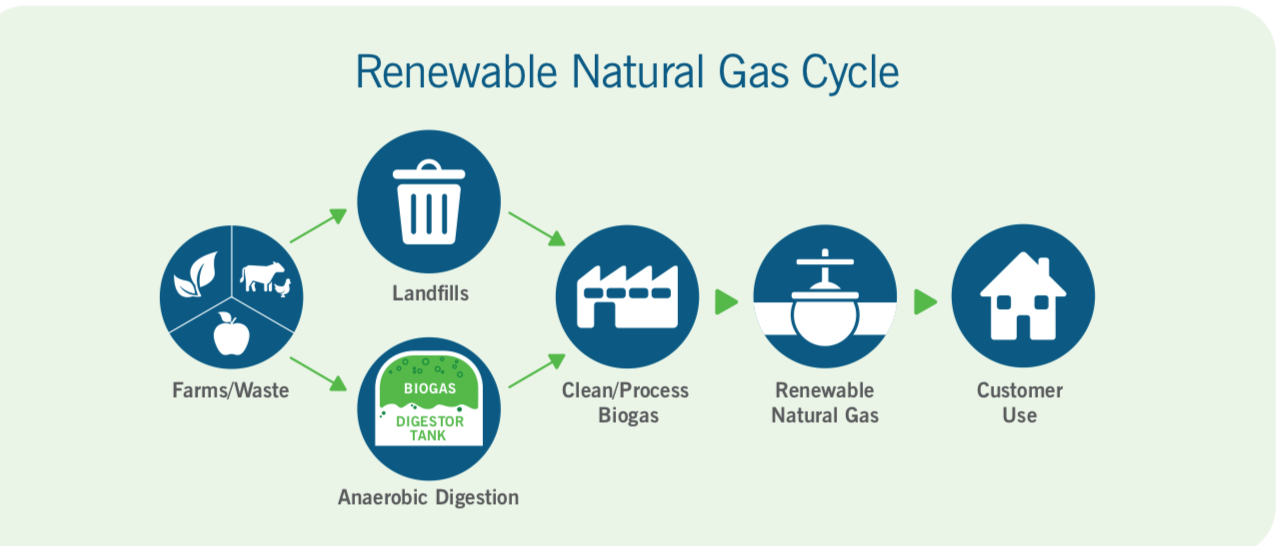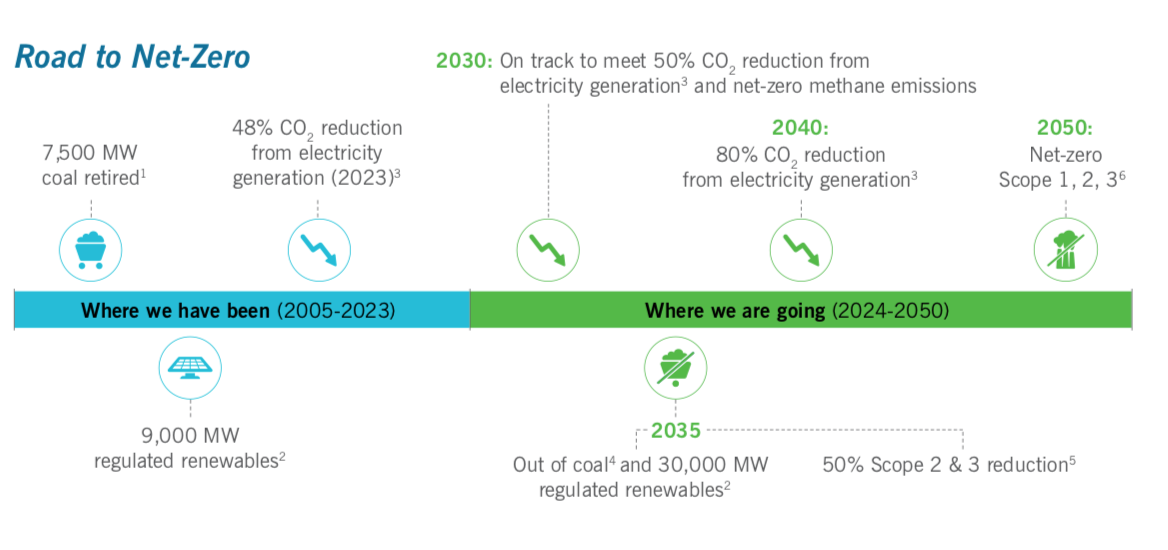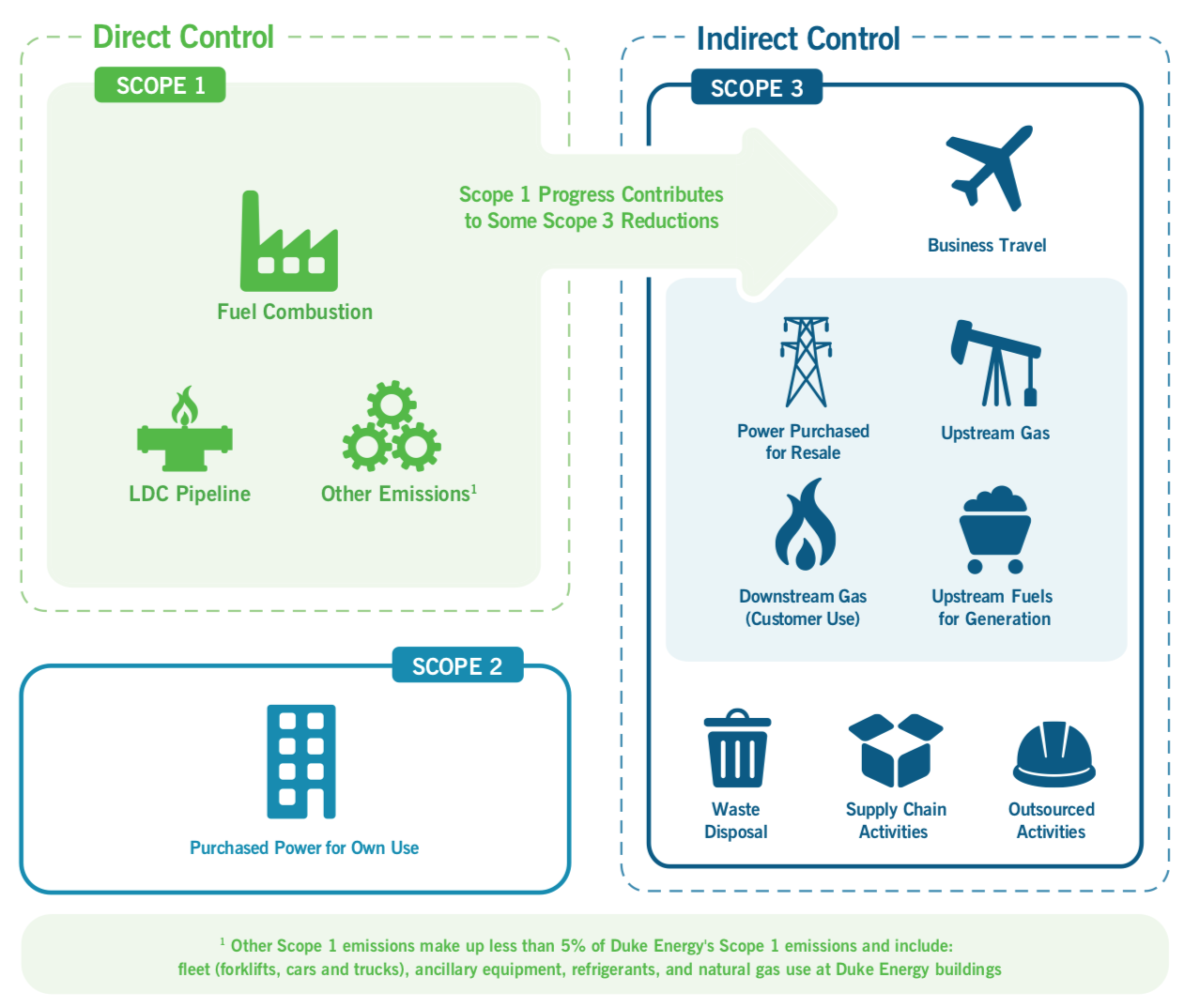CEF Lead Executives
-
KATHERINE NEEBEItem Link List Item 2
Chief Sustainability Officer, VP National Engagement & Strategy, and President, Duke Energy Foundation
Katherine joined Duke Energy in Auguest 2020. She has 20+ years of experience developing, executing, and leading multi-million dollar initiatives across multiple sectors within social and environmental sustainability, encompassing topics such as climate change, natural capital and human rights. From 2013-2020, Katherine was at Walmart where she led the company’s ESG strategy (2018-2020) focused on strengthening the company’s global responsibility program and demonstrating how it delivers shared value. In this capacity, she worked across the enterprise to shape disclosures and close programmatic gaps. As part of her role, she led Walmart’s work on human rights. She oversaw stakeholder engagement for the sustainability team (2013-2017) and focused on high-impact partnerships that delivered strategic value to the business as well as international policy, inclusive of Walmart’s engagement in COP21 & COP23. Prior to Walmart, Katherine spent six years at WWF managing one of the world’s largest corporate-NGO partnerships, a $97MM sustainability-driven initiative with The Coca-Cola Company. Katherine is a First Movers fellow through the Aspen Institute, received her MBA from The Darden School at UVa and has a BA in English from Colorado College.
-
HEATHER QUINLEYItem Link
Managing Director ESG & Sustainability
Heather and her team are responsible for setting the enterprise wide ESG strategy and helping foster transparency in both reporting and partnerships at the national and local level. Heather has been with Duke Energy for over 20 years. Prior to her current role, Heather was Director, Stakeholder Engagement. Prior to joining the energy industry in 2000, Heather was a consultant in an anti-trust economic consulting firm, Economists Incorporated, in Washington, D.C., and worked in Hungary through a multinational nongovernment organization. Heather serves as Executive Sponsor of the Duke Energy Ohio/Kentucky Business Women’s Network. Heather is a Fellow of the Aspen Institute and was a member of the inaugural Catto Fellowship class. Heather earned a Bachelor of Arts degree in environmental science at the University of Virginia and holds a Master of Public Policy from Harvard University’s Kennedy School of Government. Heather lives in Cincinnati, Ohio, with her husband and their three children.
-
RJ CRANEItem Link
Director, ESG Data Governance
RJ is responsible for advancing the maturity of Duke Energy’s ESG reporting and disclosures efforts by driving invation in data collection and validation, strengthening data governance, and supporting corporate ESG strategies. RJ has been with Duke Energy for over 10 years. Prior to his current role, RJ was leading invation efforts and developing and implementing the data analytics strategy and framework for internal audit. Prior to Duke Energy, RJ worked at Ernst & Young in the risk advisory and performance techlogy group. RJ is a Certified Public Accountant in rth Carolina and received his accounting degree from the University of rth Carolina at Charlotte.
-
SARAH MURRAYItem Link
Director, ESG Reporting & Disclosures
Sarah joined Duke Energy in 2022 and is the Director of ESG Reporting and Disclosures in the ESG and Sustainability department. Her work focuses on voluntary reporting and keeping abreast of best practices in the ever-evolving reporting and disclosure landscape. Prior to her role at Duke Energy, Sarah worked as Stakeholder Engagement and Sustainability Manager for Lowe’s Home Improvement and previously worked in sustainability at higher education institutions and as an environmental planning consultant. Sarah is located in Charlotte, NC and spends her free time reading memoirs, attending live music, and playing board games with friends and family.
Latest Sustainability Report
(April 2024)
Highlights
- Reduced carbon emissions by 48% since 2005.
- Reduced Scope 2 emissions by approximately 10,000 metric tons in 2023, driven by a decrease in transmission line loss.
- Invested over $4 billion in infrastructure and modernizing the grid with a focus on reliability and resiliency.
- Reached nearly 9,000 MW of regulated renewables and remains on track to achieve 30,000 MW by 2035.
- Announced plans to build and operate the first solar-to-100% hydrogen-fired turbine in the U.S. (in Florida).
- In 2023, the U.S. Department of Energy selected the company’s Integrated Methane Monitoring Platform Extension project for expansion upstream and downstream. The company’s methane monitoring platform has reduced recordable leaks by more than 85% since the beginning of 2022.
- The workforce was made up of 23.6% women, and 20.5% people of color in 2023.
- Spent $1.288 billion with Tier 1 diverse suppliers in 2023.

Recent News
2024
DCFlex —Launched by EPRI (The Electric Power Research Institute), this new initiative will explore how data centers can strengthen the electric grid, enable better asset utilization, and support the clean energy transition. DCFlex will establish 5-10 flexibility hubs, demonstrating innovative data center and power supplier strategies that enable operational and deployment flexibility, streamline grid integration, and transition backup power solutions to grid assets (with demonstration deployment starting in the first half of 2025). Founding members include CEF members: Duke Energy, Google, Meta, and NRG Energy. (Nov 2024)
Along with Amazon, Google, Microsoft, and Nucor, Duke announced agreements to develop new power contract terms with electric utilities in North and South Carolina to lower the cost of and advance the building of carbon-free technologies such as nuclear technologies and batteries. Duke and the technology companies propose developing new electricity tariffs that would enable large customers to directly support carbon-free energy generation investments through innovative financing and contributions that address project risk. The new rate structures would facilitate on-site generation at customer facilities, participation in load flexibility programs, and investments in clean energy assets. (June 2024)
2023
Announced plans to build a first-of-its-kind performance center that will model and accelerate the development, testing and deployment of zero-emissions light-, medium- and heavy-duty commercial electric vehicle (EV) fleets. The center will incorporate microgrid capability (using 100% carbon-free resources) and provide a commercial-grade charging experience for fleet customers evaluating or launching electrification strategies. (March 2023)
2022
27 companies that collectively generate over $1.2 trillion in annual revenue and have 1.4 million employees sent an open letter calling bold climate action a “business imperative” and urging House Speaker Nancy Pelosi and Senate Majority Leader Chuck Schumer to enact the Build Back Better Act’s climate and clean energy provisions. They said the provisions would “help spur private sector investment at the scale needed” to help them meet their long-term climate goals and would greatly affect opportunities for exporting low-carbon technologies, products, and expertise. The letter was organized by the Center for Climate and Energy Solutions (C2ES), and signatories include CEF members Duke Energy, Ford, GE, HP Inc., Schneider Electric, and Trane Technologies. (Feb 2022)
Expanded its 2050 net-zero goals to include Scope 2 and certain Scope 3 emissions (Feb 2022):
- For its electric business, it committed to reaching net-zero GHG emissions from the power it purchases for resale, the electricity it purchases for its own use, and the procurement of fossil fuels used for generation
- For its natural gas business, it committed to reaching net-zero upstream methane and carbon emissions related to purchased gas, and net-zero downstream carbon emissions from customers’ consumption
Committed to generating less than 5% of its total energy from coal by 2030 and fully exiting coal by 2035, which the company says is “the largest planned coal fleet retirement in the industry.” (Feb 2022)
VC firm Energy Impact Partners is launching a Deep Decarbonization Frontier Fund to support early-stage climate tech across several industries and accelerate the net-zero transition. The fund has raised over $200 million (goal of $350 million) from over 22 strategic partners and investors, including CEF members Duke Energy and Microsoft (through its Climate Innovation Fund). (Jan 2022)
2021
National Electric Highway Coalition (NEHC) — The Electric Highway Coalition and the Midwest Electric Vehicle Charging Infrastructure Collaboration merged to form the NEHC, a new coalition to provide EV fast charging ports that make charging more accessible along US highways by year-end 2023. The coalition includes 51 investor-owned electric companies—including CEF member Duke Energy—as well as an electric cooperative and the Tennessee Valley Authority. (Dec 2021)
Launched a new Sustainable Financing Framework
that defines investment areas aligned with its clean energy strategy and aims to attract investments
in eligible green and social projects. (Nov 2021)
MORE »
AT&T —
Committed to
collaborating with other businesses to collectively reduce one gigaton of GHG emissions by 2035—equal to about 15% of all US GHG emissions or 1.6 billion flights from LA to New York—through 5G and other broadband solutions. Founding partners of the
“Connected Climate Initiative” include
Duke Energy, Microsoft,
and
BSR. (Sept 2021)
MORE »
Accenture, Duke Energy, and
Microsoft
are partnering to create a new platform that provides near-real-time data on
methane emissions from Duke Energy’s natural gas distribution systems. The platform will be hosted on Microsoft Azure, and Accenture—in collaboration with
Avande, its joint venture with Microsoft—will apply its AI, analytics, and cloud computing expertise. Platform implementation is expected by October. (Aug 2021)
MORE »
Announced it
now owns, operates, or purchases over 10,000 megawatts of solar and wind energy in the U.S.
(Aug 2021)
MORE »
U.S. power sector emissions declined 10% from 2019 to 2020, according to a report by
Entergy,
Exelon,
Bank of America,
Ceres, and the
Natural Resources Defense Council. 85 of the top 100 power producers generated power from zero-carbon sources in 2019, with
Exelon, NextEra Energy, and
Duke
as the top 3 zero-carbon generators.
(Aug 2021)
MORE »
ENERGY IMPACT PARTNERS —
The global energy venture capital firm
launched the Elevate Future Fund, which aims to advance diversity, equity, and inclusion for clean-tech entrepreneurs working toward a low-carbon economy. The fund has secured over half its targeted amount of $120 million. Founding corporate partners include
Duke Energy, Microsoft, Alliant Energy,
and FirstEnergy Corp. (Aug 2021)
MORE »
GENERAL MOTORS —
Announced it will launch its Ultium Charge 360 fleet-charging service to connect fleet customers with services, tools, and resources to make a smooth switch to electric vehicles.
It will also support home charging and provide drivers with access to over 60,000 public charging locations.
Duke Energy company
eTransEnergy, EVgo, In-Charge Energy,
and
Schneider Electric are preferred infrastructure providers. (July 2021)
MORE »
Announced plans to study the potential benefits of converting retiring coal units into long-duration clean energy storage systems in partnership with Malta, an energy storage solutions company. Deliverables of the study include an engineering conceptual study, a technology maturation plan, and a socioeconomic report on potential benefits. (May 2021)
Launched Duke Energy Sustainable Solutions, a new brand to offer customized clean energy and resilient infrastructure solutions at scale for commercial customers across the United States. The new brand unifies products and services provided by several of its subsidiaries—including Duke Energy Renewables, REC Solar, and Duke Energy One—under one comprehensive brand. (May 2021)
Announced plans to triple its renewable power output—including wind, solar and hydroelectric—to 23% by 2030 (7% today). (May 2021)
Released a report disclosing its participation in major trade associations and how their climate views and policies align with the company’s. (March 2021)
Duke Energy launched “eTransEnergy,” a new subsidiary to support large businesses, school districts, and municipalities in their transition to clean energy transportation. (February 2021)
2020
Duke Energy Renewables has closed $109.4 million in preferred tax equity funding from Goldman Sachs’ Alternative Energy Investing Group to fund approximately 75 MW of solar and solar-plus-storage projects. (August 2020)
Duke Energy has appointed Katherine Neebe as the company’s Chief Sustainability Officer and President of the Duke Energy Foundation. (August 2020)
Duke Energy Florida announced plans to build three new solar power plants with more than 220MW of combined generation capacity. The new projects will enable the company to achieve its commitment to provide 700MW of clean energy to customers by 2022. (June 2020)
Duke Energy released its "2020 Climate Report," which details the company's plans to achieve net-zero CO2 emissions by 2050. The report highlights that the company’s path to net zero will require additional coal retirements, significant growth in renewables and energy storage, continued utilization of natural gas, ongoing operation of its nuclear fleet, and advancements in load management programs and rate design. (May 2020)
Duke Energy will donate $1.3 million to hunger relief efforts in the seven states it serves. The company is also waiving late payment fees, fees for returned payments, and fees for credit and debit card payments beginning March 21 until the national state of emergency is lifted. (March 2020)
MORE »
2019
Duke Energy announced a new goal to achieve net-zero carbon emissions from electric generation by 2050. The company also accelerated its near-term carbon goal, with plans to cut its CO2 emissions by at least 50% by 2030, compared to 2005 levels. (Sep 2019)
AT&T has signed virtual power purchase agreements with Invenergy and Duke Energy Renewables to support new wind and solar projects. As a result, the company’s portfolio of renewable energy purchases has surpassed 1.5 gigawatts (GW). (Sep 2019)
Sprint signed a 12-year virtual power purchase agreement with Duke Energy Renewables to source 173 MW of renewable energy from the Maryneal Windpower project in Texas. This deal will enable Sprint to achieve approximately 30% renewable energy for its total electricity portfolio. (Sep 2019)
How can we help? Please reach out to us!
Laura Keenan, Chair
laura@corporateecoforum.com | (617) 921-2307
Amy O’Meara, Executive Director
amy@corporateecoforum.com | (857) 222-8270
Mike Rama, Deputy Director
mike@corporateecoforum.com | (607) 287-9236
Margaret Zamoyta, Program Lead
margaret@corporateecoforum.com I (917) 678-4161
MR Rangaswami, Founder


